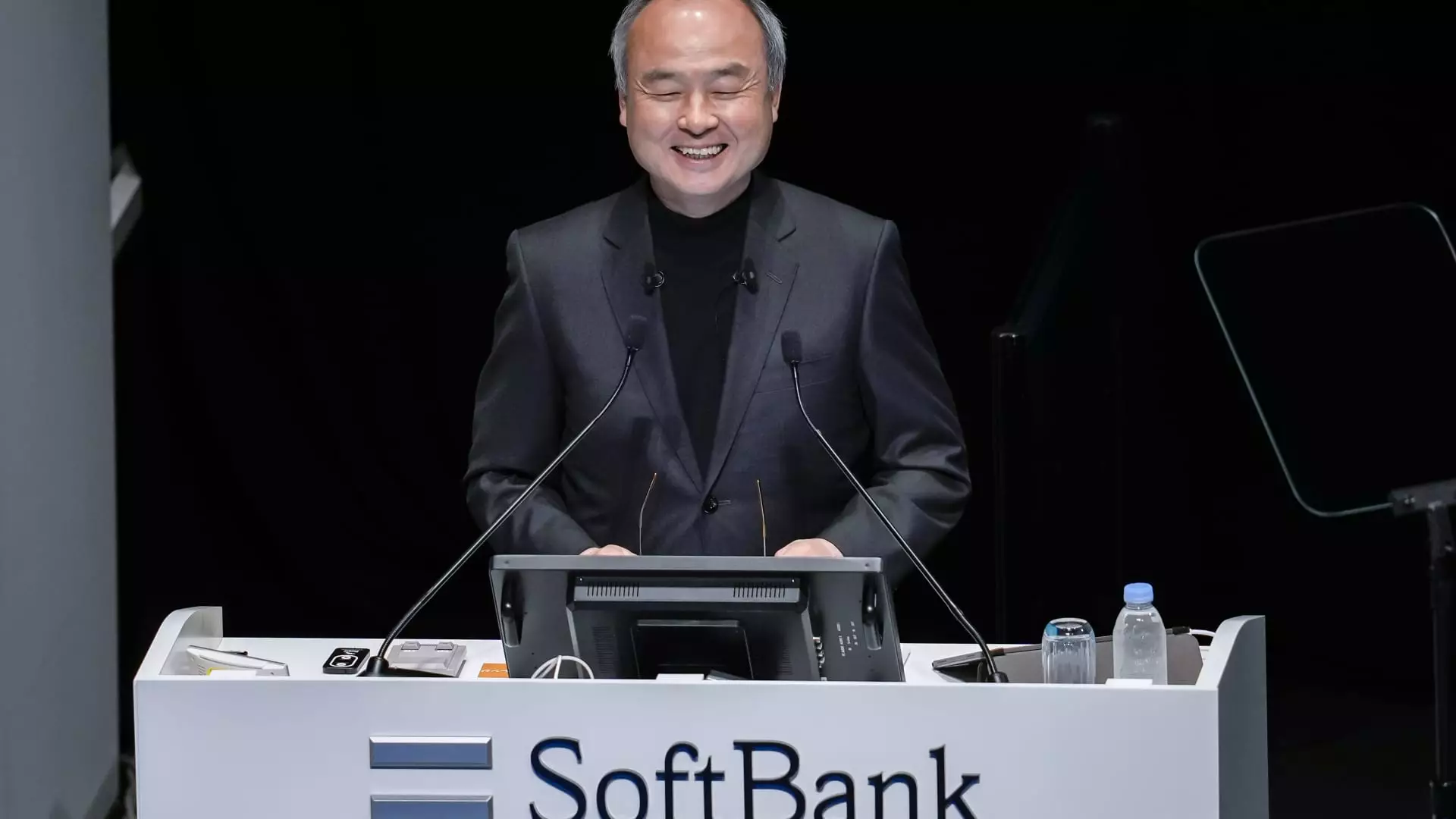SoftBank’s CEO Masayoshi Son has never been shy about his ambition, but his recent declarations signal an even deeper commitment: an unwavering, “all in” investment stance on OpenAI. This marks not just a financial gamble but a strategic maneuver aimed at positioning SoftBank as a central figure in the evolution toward what Son terms “artificial superintelligence” (ASI) — a level of AI intelligence purportedly 10,000 times smarter than humans. Son’s grand vision reflects not merely enthusiasm for AI technology but a conviction that this field represents the next monumental leap in industrial innovation and global economic impact.
Despite OpenAI’s status as an unlisted and yet-to-turn a profit company, SoftBank plans to pour nearly $33.2 billion (4.8 trillion yen) into the AI pioneer. This staggering commitment sheds light on Son’s belief that value in technology startups shouldn’t be judged solely on current financials but on transformative potential. Such a stance is audacious, especially given the fierce competition around AI investments and the inherent uncertainties of groundbreaking tech ventures.
The Intersection of Strategic Misses and Future Opportunities
The story of SoftBank and OpenAI is not devoid of missed chances and second-best options. Years ago, Sam Altman, OpenAI’s CEO, approached Son for a $10 billion investment—a proposal Son was ready to accept thanks to SoftBank’s robust financial positioning from the Vision Fund’s earlier successes. Yet OpenAI gravitated toward Microsoft, whose global infrastructure and brand power promised immediate resources and validation.
It is telling that Son now suggests OpenAI might have fared better had it chosen SoftBank initially, an admission that underlines his frustration but also signals SoftBank’s rising stature. Microsoft’s exclusivity as OpenAI’s cloud provider ended this year, and recent reports suggest discord between Microsoft and OpenAI regarding corporate restructuring, indicating that the initial Microsoft alliance may already be faltering.
This dynamic fuels SoftBank’s renewed assertiveness and sense of opportunity—despite the fact that SoftBank once considered adjusting its multi-billion-dollar stake downward if OpenAI didn’t transition to a for-profit status. Today, Son’s conviction has only intensified, underscoring how SoftBank is placing its chips on OpenAI’s long-term value and disruptive potential, independent of its relationship with Microsoft.
Building the AI Ecosystem: More Than Just Funding OpenAI
Son’s ambitions extend beyond mere investment. He aims to transform SoftBank into the pivotal platform orchestrating the artificial superintelligence era. Crucial to this strategy is leveraging partnerships that tie together crucial AI infrastructure components: the software expertise from OpenAI, the semiconductor innovation via British chip designer Arm (acquired by SoftBank in 2016), and the U.S.-based chip designer Ampere (acquired in a $6.5 billion deal this year).
These pieces illustrate a holistic approach, where SoftBank is not merely a financier but an integrator—melding innovative AI software and hardware capabilities into a seamless industrial ecosystem. In doing so, SoftBank hopes to shape the future AI landscape, with control points across the technology stack from algorithms to physical chips powering AI workloads.
Moreover, Son’s rumored $1 trillion industrial complex plan in the U.S. hints at ambitions far beyond investment returns; it conveys an aspiration to build a sprawling hub of AI research, manufacturing, and deployment, possibly transforming regional economies and several AI-linked industries simultaneously.
Why SoftBank’s All-In Approach Deserves Attention—and Caution
Son’s enthusiasm, while inspiring, also invites scrutiny. Pouring tens of billions into an unlisted, currently unprofitable AI player sounds more like a high-stakes gamble than conservative industrial strategy. This kind of all-or-nothing bet carries multiples risks: technological hurdles, competitive disruption, and the fickle nature of AI’s regulatory and ethical landscape.
Yet, risk often accompanies innovation breakthroughs. SoftBank’s decision to double down seems less about hedging bets and more about visionary entrepreneurship—the willingness to back seismic shifts in technology and society regardless of short-term financial metrics. This aligns with Son’s reputation for embracing big, risky plays with potential for outsized rewards.
At its core, SoftBank’s relationship with OpenAI exemplifies a larger narrative of how global conglomerates navigate the swift currents of AI development. It is a calculated, ambitious positioning that could either crown SoftBank as the pivotal leader of the AI era or leave it overextended amid unpredictable tech upheavals.
The true test will be how SoftBank balances visionary zeal with pragmatic adaptability as artificial superintelligence moves from buzzword to reality. For now, Masayoshi Son’s gambit invites respect—for its courage, scale, and clarity of purpose—in the increasingly critical race for AI supremacy.


Leave a Reply